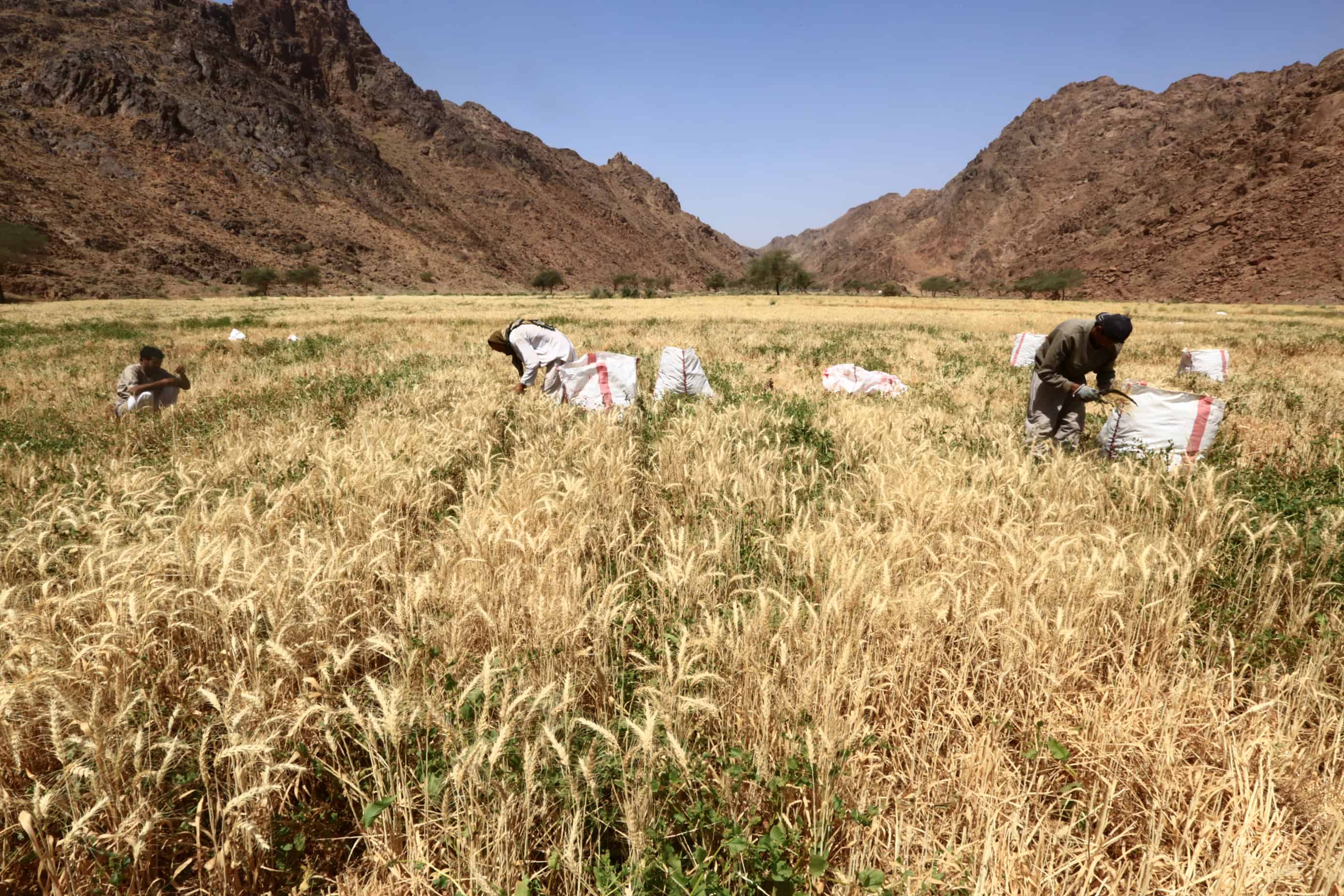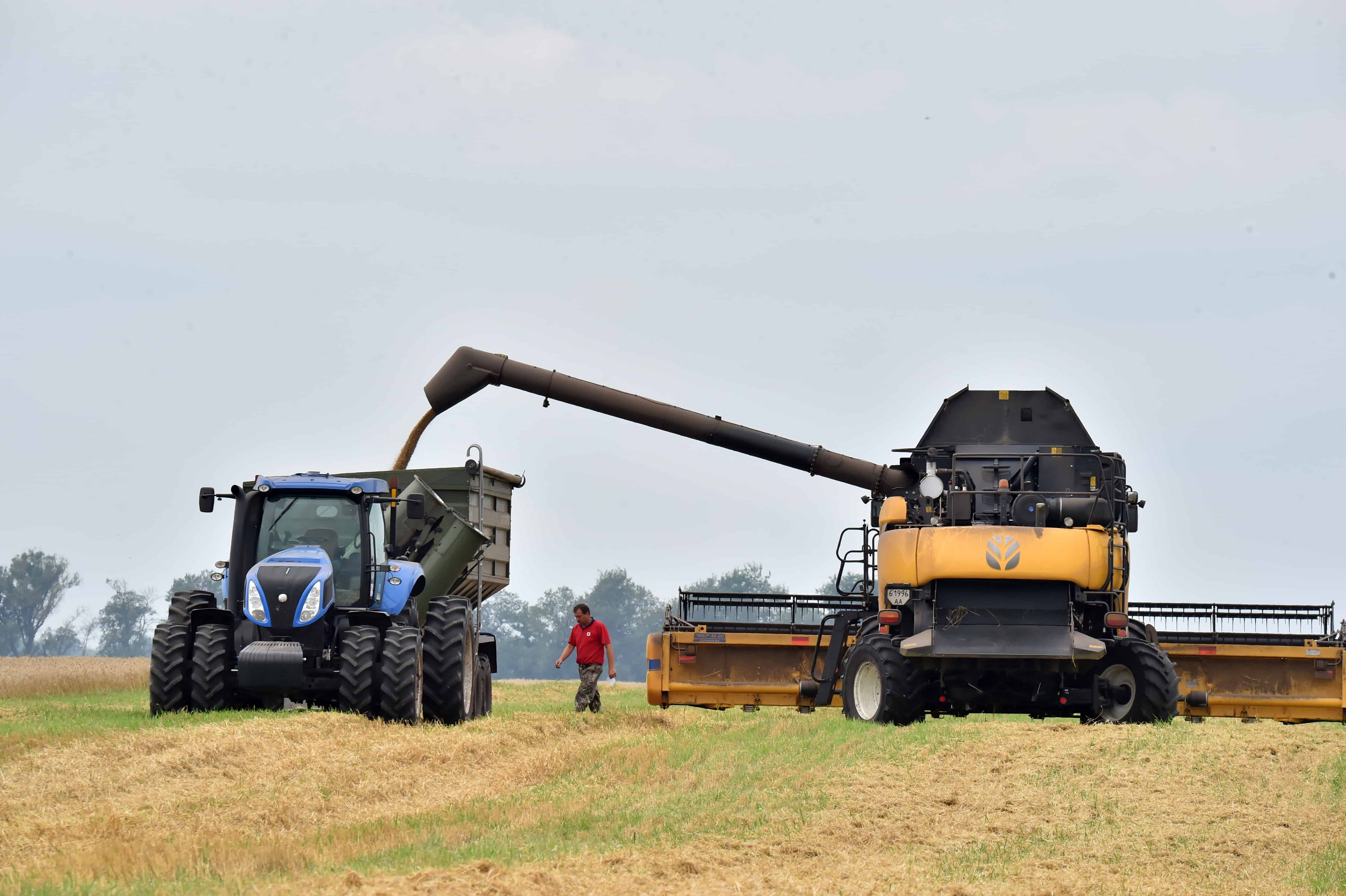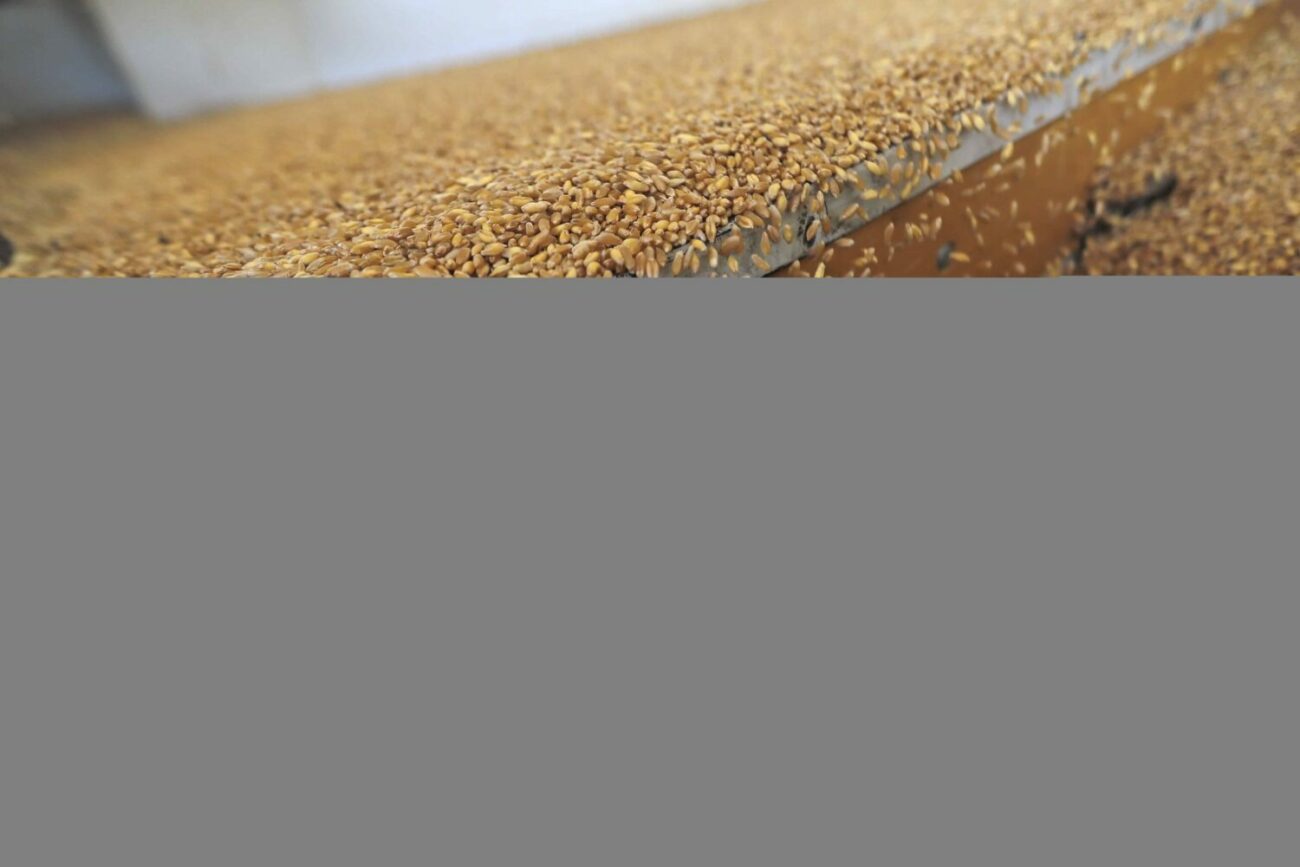With the outbreak of war between Russia and Ukraine, the risks of the Gulf states being affected by it increase as they depend on the two countries to meet a large proportion of their food requirements.
According to the US Department of Agriculture’s marketing-year estimate, Russia and Ukraine are the world’s largest grain exporters, with combined wheat shipments accounting for nearly a quarter of global supply.
Russia and Ukraine sell 206.9 million tons of wheat, in addition to meat and poultry, to several Gulf countries, according to the US Department of Agriculture
According to the US data source “S&P,” Russia and Ukraine sell 206.9 million tons of wheat, in addition to meat and poultry, to several Gulf countries.
Ukrainian wheat exports from the start of the 2021-2022 marketing year (July-June) through January 24 totaled 16.6 million tons, up from 12.9 million tons in the previous year’s equivalent period.
Observers anticipate that the war between Russia and Ukraine will result in a food crisis in the Middle East as a whole as they import thousands of tonnes of food products from the two countries.
Gulf imports from Russia and Ukraine

Saudi Arabia buys wheat, beef, and milk from both Ukraine and Russia and relies on them for various products, particularly agricultural products.
Saudi Arabia purchased 592,000 tons of Ukrainian wheat in 2021, more than four times what it did in 2020.
Ukraine exports roughly 450,000 tons of meat every year, with Saudi Arabia acquiring 18.4 percent of Ukrainian poultry.
Saudi Arabia purchased 592,000 tons of Ukrainian wheat in 2021, more than four times what it did in 2020.
The kingdom owns roughly 200,000 hectares of agricultural land in western Ukraine, managed by the Saudi Investment Fund’s “SALIC” company in 2011 to assure the kingdom’s food security through foreign investments.
Kuwait also imports wheat, eggs, fresh, frozen, chilled, semi-processed chicken, and beef from Russia and Ukraine, and if the two countries go to war, those imports could be halted.
With the increase of military tensions between the two countries, Kuwait began looking for alternative sources of products and imports from Russia and Ukraine.
According to sources revealed to Kuwait’s local media, Al-Nahar, on Sunday, February 20, diversifying import sources and rationalizing local consumption are two options Kuwait would pursue.
The UAE imports $750 million in intermediate goods and raw materials from Ukraine, with vegetables accounting for $98 million, while Qatar imports $38 million in raw materials and $34 million in vegetables.
Wheat, meat, eggs, and vegetables are also imported from Russia and Ukraine by the UAE, Qatar, Bahrain, and Oman.
The UAE imports $750 million in intermediate goods and raw materials from Ukraine, with vegetables accounting for $98 million, while Qatar imports $38 million in raw materials and $34 million in vegetables.
Oman imports intermediate goods from Ukraine up to $30 million and vegetables to $29 million.
In general, the Arab Gulf countries rank fifth among the Middle East’s eleven top importers of Ukrainian chicken in 2020.
Consequences of the war

The Ukrainian-Russian war will directly impact the Gulf and Arab countries since they import vast food items from the two countries, particularly wheat.
The consequences will be felt in terms of food security and oil and shipping prices.
In addition to the war’s impact on food supplies to the Gulf countries, prices are projected to rise dramatically in the coming months, particularly if the supply chains are disrupted.
In addition to the war’s impact on food supplies to the Gulf countries, prices are projected to rise dramatically in the coming months, particularly if the supply chains are disrupted.
According to the Food and Agriculture Organization of the United Nations (FAO), prices would rise, particularly for wheat, which revealed that the global food price index increased in January.
FAO’s report revealed that global food prices increased by nearly 28% last year. Moreover, the average world price of cereals increased by 27.3 percent in September 2021 over September 2020, reaching its highest level in a decade.
War fears have already driven corn futures contracts to their highest values since June and wheat futures contracts to a two-month high before falling back.
Ukraine exports 12 percent of the world’s wheat, 16 percent of corn, 18 percent of barley, 19 percent of canola, and 40 percent of its corn and wheat shipments travel to the Middle East or Africa
Food prices fluctuated before Russia invaded Ukraine, as Russia is one of the world’s top wheat exporters, and Ukraine has emerged as a grain supply in recent years.
Ukraine exports 12 percent of the world’s wheat, 16 percent of corn, 18 percent of barley, 19 percent of canola, and 40 percent of its corn and wheat shipments travel to the Middle East or Africa.
However, Ayham Kamel, head of the Middle East and North Africa section at Eurasia Group, a New York-based research organization, told Reuters that a severe food shortage crisis in the Gulf countries is unlikely to happen in the short term, since they can absorb rising import costs.








